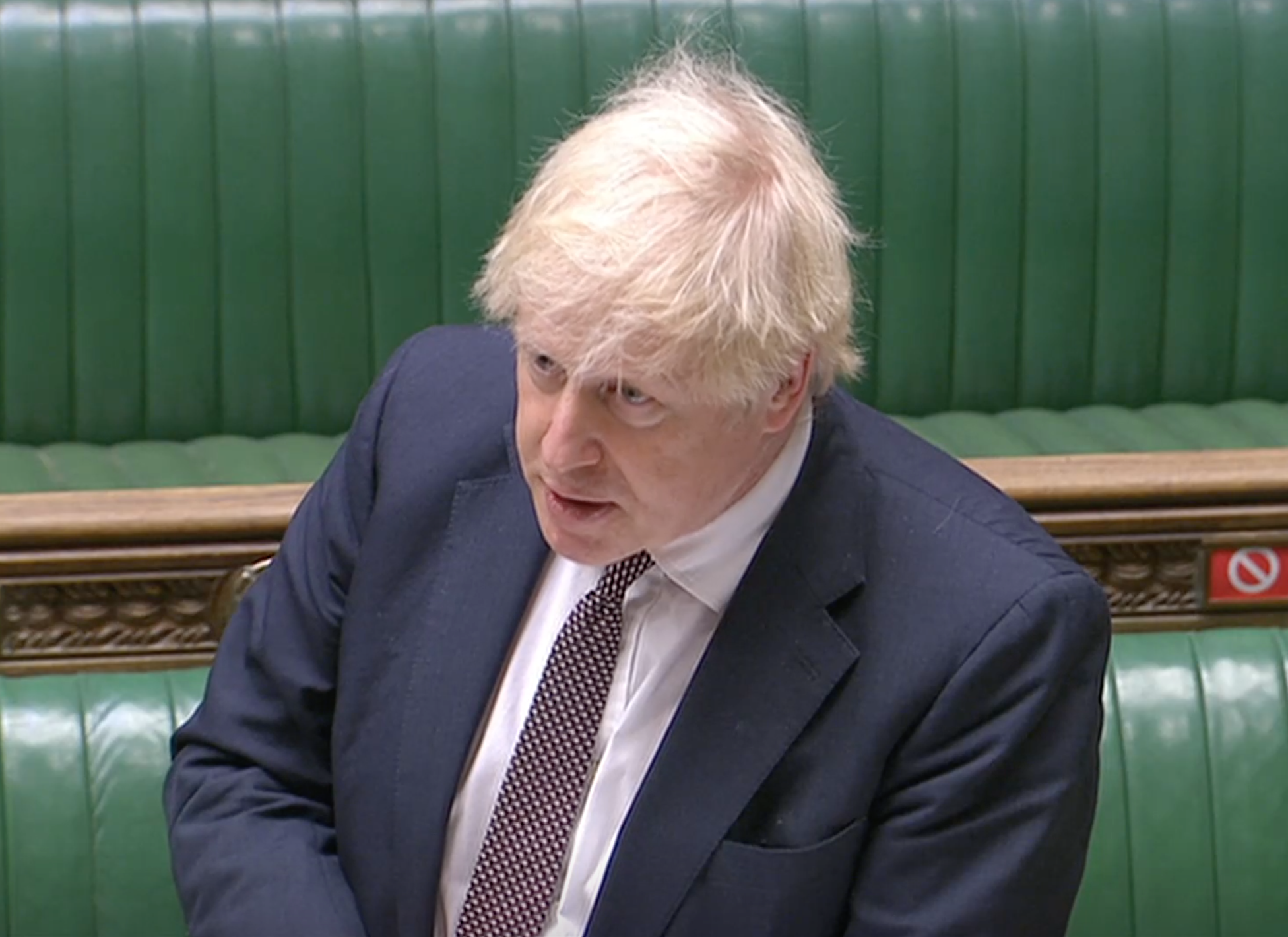Boris Johnson would be playing a dangerous game in diluting workers’ rights
The business secretary, Kwasi Kwarteng, has insisted the government will not ‘row back’ on protections. Andrew Grice considers a new battle within the Tory ranks


The government is considering whether to dilute workers’ rights guaranteed by EU law in a symbolic act of divergence from Brussels which could end the legal right to work no more than 48 hours a week and take rest breaks, and reduce entitlement to holiday pay.
This could become the first test of the UK-EU trade deal, and whether Brussels tries to impose retaliatory tariffs under the “level playing field” provisions. Boris Johnson is under pressure from hardline Brexiteers on the Conservative benches to take advantage of his much-trumpeted powers to wriggle free from what they see as the straitjacket of EU rules.
Many Tories have long hated the 48-hour maximum working week and now see a chance to deregulate to make the UK’s already flexible labour market even more competitive in the global race. But it could put the government on a collision course with Brussels, where insiders tell me they are watching the UK “like hawks”. Although they are not looking for a row, trust in Johnson is in short supply after he threatened to tear up the 2019 withdrawal agreement with the EU over Northern Ireland.
This proposal could also have far-reaching implications on the domestic front. Instinctively, Johnson and the chancellor Rishi Sunak are sympathetic. The prime minister nodded in that direction by appointing Kwasi Kwarteng, a champion of the free market, as his business secretary last week.
Kwarteng, who is driving a review of labour rules with Downing Street’s blessing, co-authored the bible of the modern-day Thatcherites, a report called Britannia Unchained, in 2012. He is now the fourth of its five authors to join Johnson’s cabinet, along with Priti Patel, Dominic Raab and Liz Truss. The blueprint claimed British employees are among “the worst idlers in the world”, do the lowest hours, retire early and deliver poor productivity. It attacked the UK’s “bloated state, high taxes and excessive regulation”.
In normal times, a Tory government with a majority of 80 would be well placed to implement such ideology. But these are anything but normal times. That majority stems from having won seats in Labour’s former red wall in the north and midlands. Many of these Tories’ working-class constituents fear for their jobs in the pandemic; it’s the worst time for the government to take away the rights of those who keep theirs.
These voters might be right-wing on cultural issues and want firm control of immigration but tend to be left of centre on the economy. Many voted Tory for the first time in 2019 because they saw Johnson as very different to the Tory image cast in stone by Margaret Thatcher’s deindustrialisation and mass unemployment. Many still give Johnson the benefit of the doubt but could turn against him if they judged he had reverted to Tory type.
Breaking his election promise to “raise standards” for workers would be a gift to Labour, allowing the opposition firmly back into the game in the red wall. The sensitivity of the matter was shown when Kwarteng insisted he would not “row back” on workers’ rights. Although there is no clamour for such a move from business, which is more worried about surviving the economic storm, the issue is on the government’s agenda and won’t go away.
The Northern Research Group of Tory MPs, whose political survival depends on championing their voters’ interests, are not among the party’s small state brigade. They are lobbying Sunak to protect the region’s families and businesses in his March Budget, and to extend the £20-a-week uplift in universal credit due to expire in April, which would cost £6bn a year.
In private, these MPs are deeply worried the pandemic’s devastating impact on the public finances will leave no money for Johnson’s flagship “levelling up” agenda, even though regional inequalities have been widened by the effects of coronavirus. Allowing worse conditions at work would be levelling down, not up.
So Johnson will soon have a huge dilemma. He will want to throw some red meat to the hardline Brexiteers to prove the UK is breaking away from the EU. But other Tory MPs will be warning him that workers’ rights are the worst possible ground on which to stake his Union Jack.
This is one decision Johnson will not be able to put off: it goes to the heart of the debate about what kind of government he will run post Brexit, and how he will resolve the battle between the small and big state Tory tribes and maintain the coalition of working-class and traditional Tory supporters he forged in 2019.
Which way will Johnson jump? There might be some tiny tweaks to allow ministers to claim they are cutting red tape without eroding workplace rights – a bit rich when Brexit has tied business up in more red tape since 1 January.
However, I suspect naked self-interest will dictate that the hunger to retain the red wall trumps that for red meat, as political reality trumps economic theory and the ideology of the new Thatcherites.
Join our commenting forum
Join thought-provoking conversations, follow other Independent readers and see their replies
Comments


Bookmark popover
Removed from bookmarks